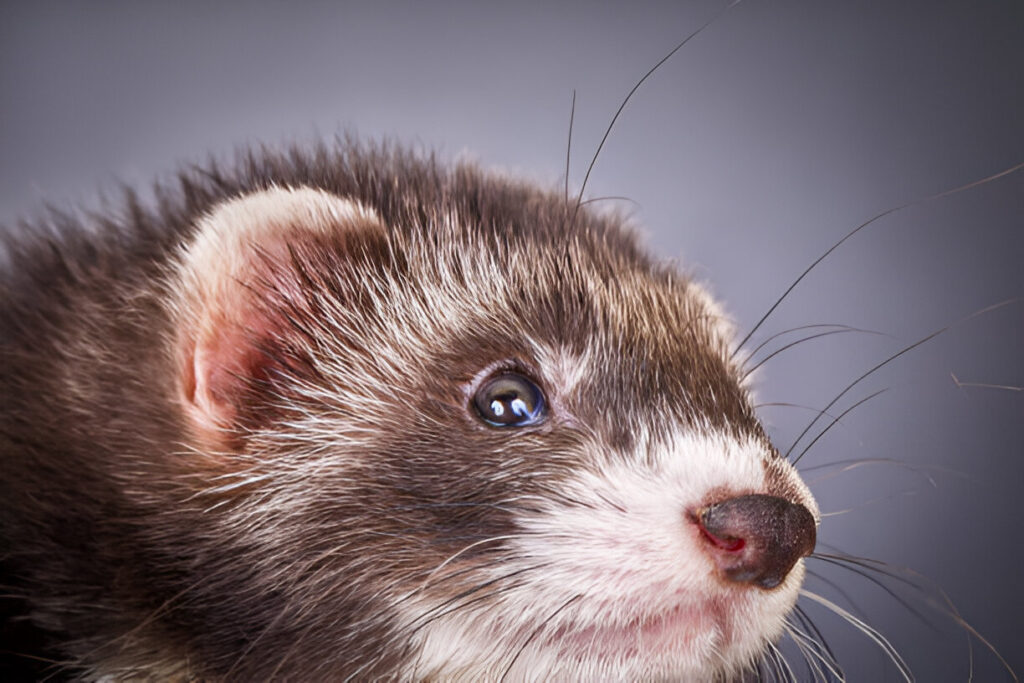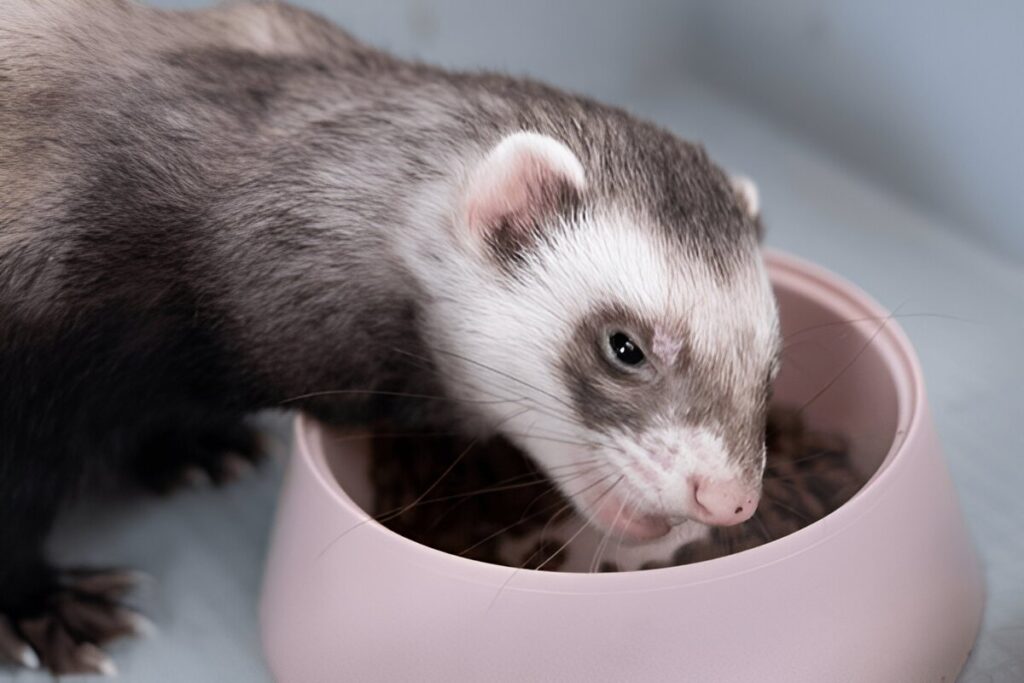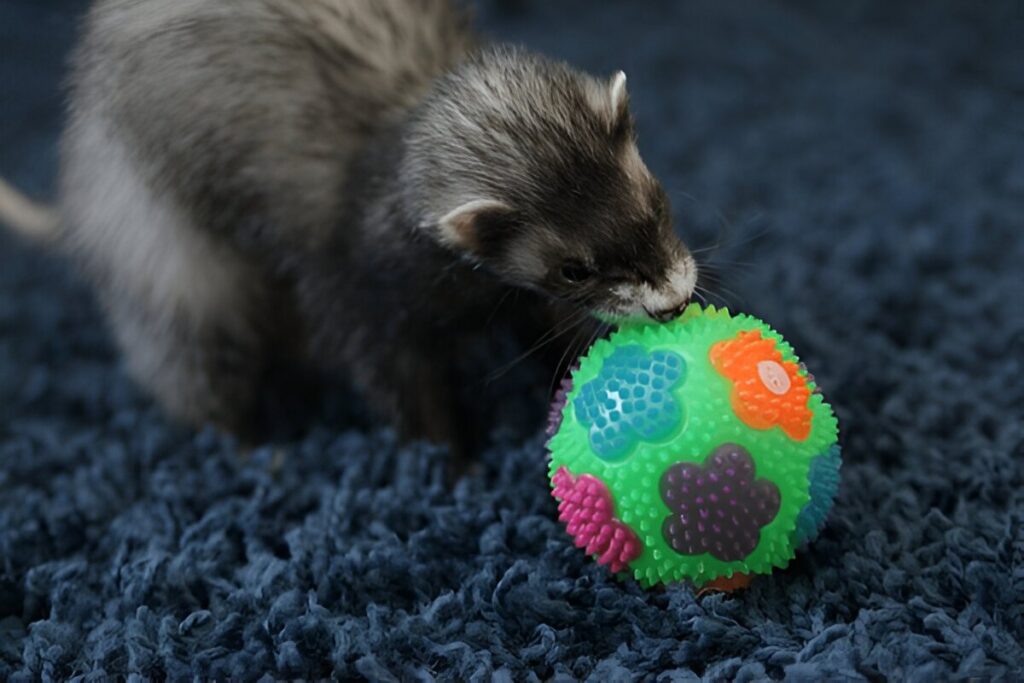Can a Ferret’s Bite Break Bones?
The Curious Case of Ferrets and Their Bites
Ferrets are favorite pets due to their playful and inquisitive nature. However, their biting behaviors have raised several questions from pet owners. One such myth is that a ferret can break bones with its bite. In this blog, we will find out the truth behind this myth, explore the behavior of ferrets, and give some practical tips on how to avoid their biting. By understanding their behavior and anatomy, we can ensure a safe and happy environment for these fascinating pets.
Understanding Ferret Behavior: Why Do They Bite?

Ferrets are curious and playful animals by nature. Their behavior is influenced through a combination of instinct and environment. Biting can be due to a number of factors, including playfulness, fear, or aggression. A playful ferret may nip because it is his way of interacting, much like a kitten plays. This sort of behavior is usually harmless and can be managed through proper training.
Biting out of fear usually occurs when a ferret feels threatened or stressed. This could be due to being handled roughly, introduced to new environments too fast, or being subjected to loud noises. Aggressive biting is less common and usually points to some health problems or behavioral issues. Understanding why your ferret is biting can be really helpful in how you will try to address the issue.
The Anatomy of a Ferret’s Jaw: How Strong is Their Bite?
The anatomy of the ferret’s jaws helps to support their bite strength. Their small teeth are very sharp and their entire jaw appears adapted for tearing and chewing. The musculature of their little heads is strong for the size of the area in question. A ferret’s skull has been developed to be just strong enough to give it a reasonable bite-to-muscle-and-tooth ratio that allows them an effective one.
But despite that fact, ferrets are small, and their jaws are not able to exert as much force as those of larger pets, such as dogs. A ferret’s bite is painful, perhaps, and can result in minor injuries, but because of the animal’s size and the way its jaw is put together, it’s very unlikely to break bones. This is an important consideration in addressing concerns about ferret bites.
Ferrets: Can Their Bite Break Bones? Common Myths –

There are several myths surrounding ferrets and their biting habits. One of the most persistent myths is that a ferret’s bite can break bones. This probably emanates from the ferret’s sharp teeth and strong jaw muscles. This is, however, largely exaggerated. While the ferret’s bite can be painful and cause minor injuries, it is not strong enough to break bones.
Owners would be better equipped to deal with their pets and without unreasonable fear if they know the myths and realities that govern the ferret bites. Keeping in mind that they are small animals, the ferret has an extremely small biting force; proper handling and training reduces incidents of biting by much.
The Real Risks of a Ferret Bite: Health and Safety Considerations
A ferret, though unlikely to break bones with its bite, may still be able to pose health hazards. For any bites, if not properly cleaned and treated, an infection could occur. It is essential to clean any bite wound with soap and water, for which medical attention might also be required. In addition, the ferret may give bacterial infections through bites; hence, one should keep up with vaccination dates and maintain hygiene practices well.
Infections from a ferret’s bites may lead to other serious complications if not treated on time. The signs and symptoms of infections include redness, swelling, and discharge from the wound site. You should consult the physician immediately after experiencing any symptoms. You can prevent many infections and health problems by properly cleaning your ferret environment and regularly taking them to your veterinarian.
How to Care for Your Pet Ferret: Biting Incidents Prevention

Proper training and socialization can prevent biting. Handle your ferret gently and frequently to make them get used to human interaction. Reward positive behavior with positive reinforcement, such as treats and praise. Socializing your ferret with other pets and people may reduce aggressive behavior.
Training your ferret to stop biting requires consistency and great patience. If your ferret bites during play, calmly say “no” and redirect their focus to a toy or another activity. Do not punish your ferret, as this will only drive up fear and aggression in them. Instead, always practice positive reinforcement and develop a safe, stimulating environment for your pet.
Some helpful ways for beginners to handle ferrets are to support the animal’s body and to handle it gently without sudden movements. The animal is sensitive to touch, and rough handling may even make the ferret become afraid of you. By petting your ferret smoothly and often, it becomes trustful, and the events of it biting are reduced.
Nutritional Benefits of Consulting a Veterinarian on Your Pet’s Diet
One of the most important means of securing a healthy diet for your ferret is consulting a veterinarian for an opinion. The veterinarian will assist in professional recommendations concerning special nutrition needs a ferret may require and advising on food. They will help you prevent or treat potential health issues before it’s too late.
Regular check-ups with a veterinarian will keep you updated into your ferret’s changing needs and dietary changes that may need to be made. A correct diet for your ferret will prevent health issues, and provide the necessary elements to sustain a healthy life.
Conclusion:
The Truth About Ferrets and Why They’re Safe Pets When Properly Managed
When ferrets are understood and handled properly in terms of their behavioral traits, they become harmless and quite pleasant pets. The bites are not really painful to a grown-up, therefore are incapable of causing any real serious harm. Learn about ferret behavior, learn signs of aggression, and by properly training and socializing them, you can create a secure, happy environment for your pet.
Keep in mind that a healthy ferret is a well-cared-for ferret. With patience and understanding of the biting incidents, this may help you bond and be with your ferret companion for many years. More so, knowing the capabilities and needs of your pet, whether a new or seasoned owner, is the best option in giving your pet the best care.
Ferrets are definitely some of the most fun pets that a person can have, ensuring sociability and play to the master of the house. Refuting myths and learning reality about ferret bites enables one to ensure a secure and joyful environment for such jumpers. With the proper care, training, and veterinary support, these pets will flourish and always turn out great in families.
Yuns Legdm is a passionate advocate for pet care and the founder of this website, dedicated to providing valuable information for fellow pet lovers and veterinary professionals worldwide. With a deep love for animals, Yuns created this platform to connect passionate pet owners with expert insights from veterinarians around the globe.
This website grows with you—the passionate pet owners and veterinary experts—creating a trusted space where knowledge, experience, and love for animals come together. Whether you’re seeking advice on pet health, nutrition, or general well-being, this platform is here to support you on your journey of responsible and loving pet care.





